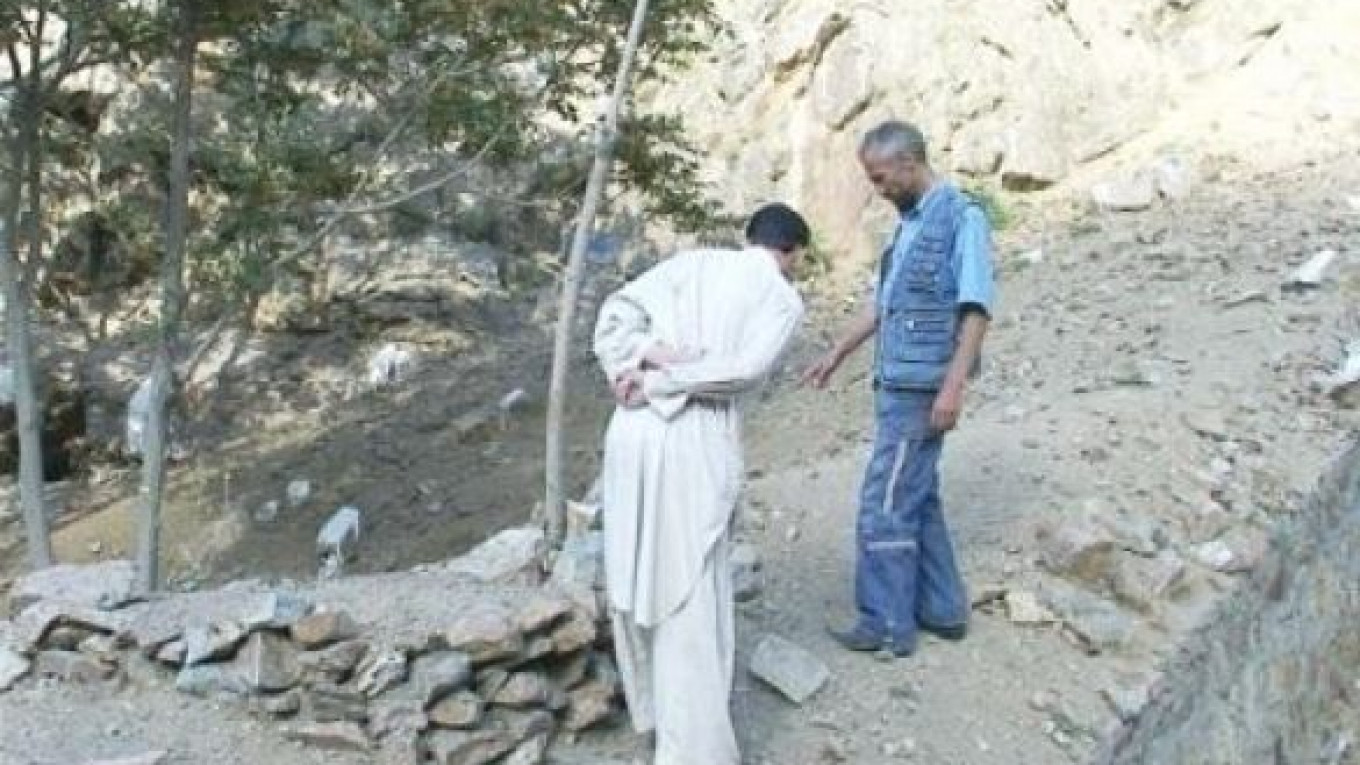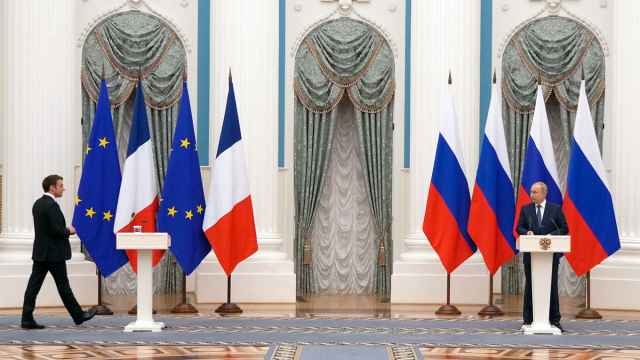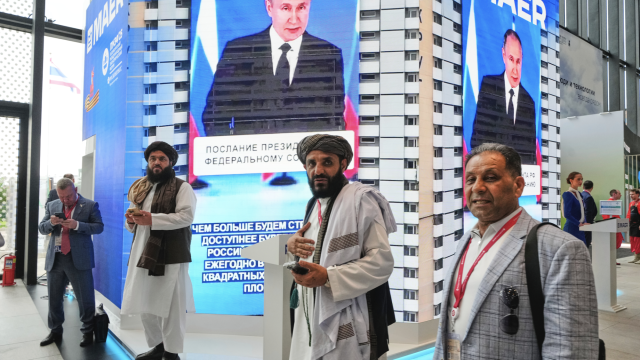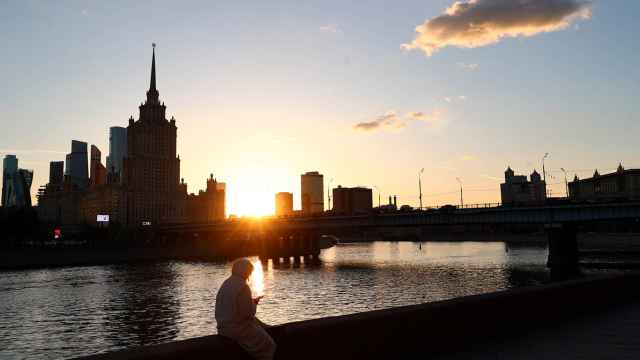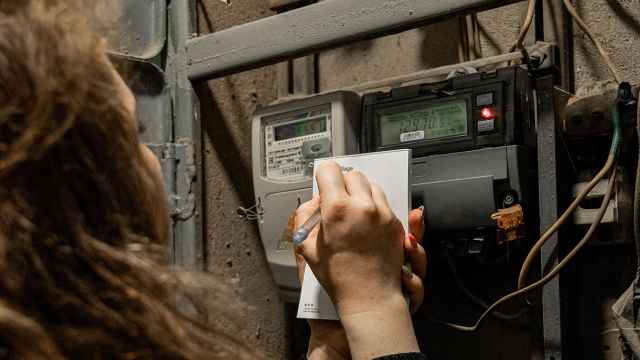In the years following his disappearance from his truck battalion during a mission in Afghanistan in 1982, some of Alexei Zuyev's former comrades in arms reported seeing him alive behind enemy lines.
But as it turned out, the 19-year-old Soviet soldier who disappeared 30 years ago in Afghanistan's Parvan province was shot by his captors, the Afghan mujahedin fighting the Soviet Army.
The determination of Zuyev's fate led to the recovery of his remains, and he will be buried with full military honors Wednesday in his native Kazakhstan.
An emotional farewell ceremony for Zuyev was held in Moscow last week near the Poklonnaya Gora monument. The monument features a Soviet soldier returning from Afghanistan.
"We are bringing our friend back home," former officer Ruslan Aushev said at the ceremony.
All that was made possible by the efforts of the Committee of International Soldiers' Affairs, led by Aushev, a charismatic general who commanded Soviet troops in Afghanistan and also served as president of Ingushetia from 1993 to 2001.
More then 15,000 Soviet soldiers died during the Afghanistan war, which started in 1979 as a Soviet attempt to install a friendly government in Kabul.
Since then, Afghanistan has once again turned into a battlefield, as U.S.-led coalition forces slug it out with Taliban radicals.
Amid the current carnage, former Soviet soldiers are coming back to the war-torn country — this time not to fight but to look for the remains of their dead.
In February, the committee returned the remains of Sergei Kolesov, another former soldier who fought in Afghanistan.
Kolesov was buried in his native St. Petersburg after being missing for nearly 28 years.
Since its founding in 1992 throughout the Commonwealth of Independent States, the committee has brought home the remains of four soldiers killed during the war.
The search process involved sifting through scattered bits of information provided by former veterans, finding the remains with the help of locals and identifying them using a costly DNA procedure.
The remains of 15 people are still awaiting DNA identification.
In Zuyev's case, the DNA sample was taken from his sister, who was the only survivor from the soldier's family.
Alexander Lavrentyev, a former intelligence analyst and a deputy head of the committee, said it took him several years to find Zuyev's remains.
The only information he had about the soldier was "Alexei from the Kokchetav region."
The committee's goal is to find all 266 soldiers still missing in Afghanistan. Half of them hailed from Russia.
For much of the 15-member committee's existence, money was a critical question.
Its charter specified that the group was to be self-financed, and survival depended on donations from former veterans who had become businessmen.
The situation changed in 2009 thanks to Aushev, whose efforts to secure outside funding were successful.
Russia, Azerbaijan, Kazakhstan and Belarus agreed to provide annual donations for the committee.
In 2010, the committee received about 2 million rubles ($70,000) from the four countries, although Russia provided most of that, Lavrentyev said.
Lavrentyev traveled to Afghanistan to find the remains of Zuyev. The trip included several visits to remote Afghan provinces, tips from elderly witnesses and talks with former rebel commanders.
"I personally got a message from the man who shot Zuyev," Lavrentyev said. "He said that he died like a soldier."
Lavrentyev said he was driven by a desire to restore Zuyev's good name. Some of Zuyev's former comrades suspected him of betraying the Soviet cause.
"Thanks to your efforts, we can now consider Zuyev a hero, not a traitor," Sergei Pivovarov, who served with Zuyev in one battalion, told Lavrentyev at the ceremony on Poklonnaya Gora.
Lavrentyev said that during his time in Afghanistan, former enemies welcomed him and his teammates in a spirit of peace.
"They said there is no more war between us. After seeing the current situation, they have started to treat Russians far better," he said.
Lavrentyev added that many former Soviet Afghan war veterans who had visited his office in downtown Moscow were at first shocked to see pictures of the committee members meeting Akhmad Shakh Masud, a late Afghan war rebel.
Masud had fought against the Soviets in Afghanistan. But he became a de facto ally of Russia, which supplied weapons so that his Northern Alliance could fight the Taliban.
The committee's work has become a personal challenge for Lavrentyev. His former business partner, also an Afghan war veteran, asked him to join and help Aushev run the day-to-day operations.
"I did not serve there," Lavrentyev said. "But I was not an outside observer, because my friends went through Afghanistan."
Although more than 600,000 Soviet soldiers fought in Afghanistan, the war once described by journalist Artyom Borovik as "hidden" has left indelible scars on the memories of Russians.
According to a 2009 VTsIOM poll, 47 percent of respondents called the mission a "questionable undertaking of the Soviet government."
Soon after pulling out of Afghanistan, the Soviet government turned its back on the soldiers.
Many of them suffered psychological trauma, and during the 1990s some became involved in criminal activity.
Lavrentyev said that in the 20 years of searching by the committee, 29 missing soldiers have been found in Afghanistan living under new names and practicing Islam.
Of that group, 22 agreed to return home; the rest decided to stay.
In Lavrentyev's words, "many of the ones who survived are emotionally destroyed people."
A Message from The Moscow Times:
Dear readers,
We are facing unprecedented challenges. Russia's Prosecutor General's Office has designated The Moscow Times as an "undesirable" organization, criminalizing our work and putting our staff at risk of prosecution. This follows our earlier unjust labeling as a "foreign agent."
These actions are direct attempts to silence independent journalism in Russia. The authorities claim our work "discredits the decisions of the Russian leadership." We see things differently: we strive to provide accurate, unbiased reporting on Russia.
We, the journalists of The Moscow Times, refuse to be silenced. But to continue our work, we need your help.
Your support, no matter how small, makes a world of difference. If you can, please support us monthly starting from just $2. It's quick to set up, and every contribution makes a significant impact.
By supporting The Moscow Times, you're defending open, independent journalism in the face of repression. Thank you for standing with us.
Remind me later.


